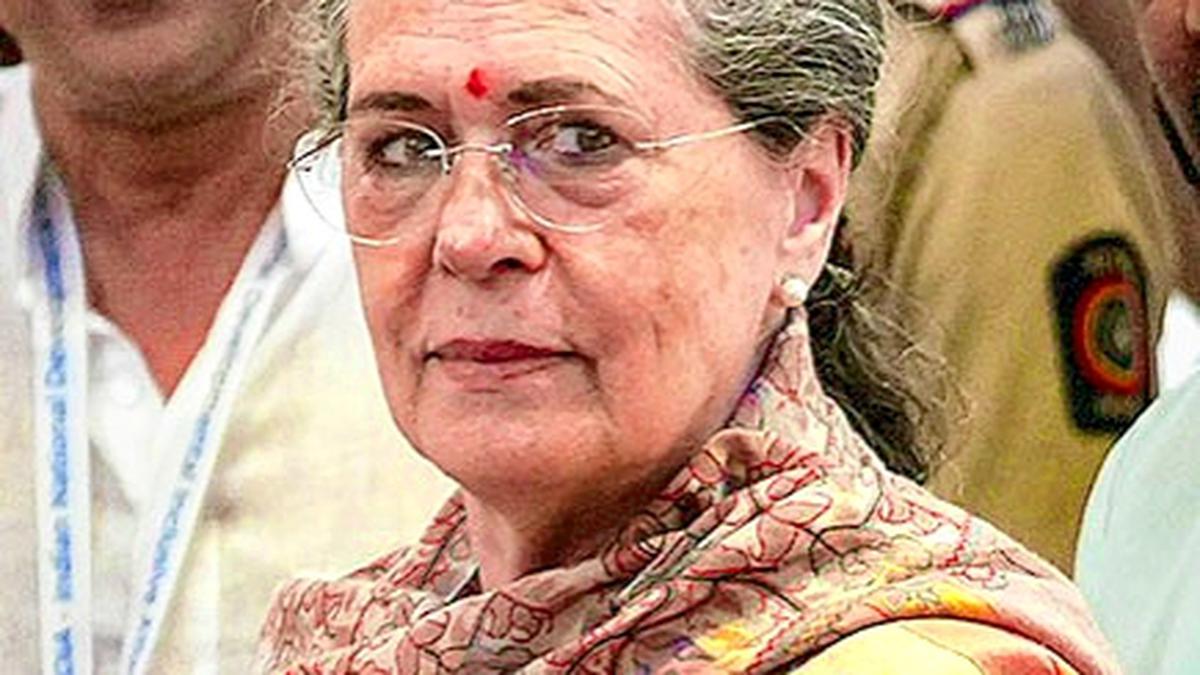
‘It is ours’: Sonia Gandhi on women’s reservation bill
The Hindu
Asked about the bill when she was entering Parliament on Tuesday, Ms. Gandhi said, “It is ours, apna hai.”
The Congress' parliamentary party chief Sonia Gandhi on September 19 said the women's reservation bill "is ours", amid speculation that the bill may be tabled in Parliament.
The Congress on Monday said it welcomed the reported move as the party has been raising the demand for long.
Asked about the bill when she was entering Parliament on Tuesday, Ms. Gandhi said, "It is ours, apna hai."
In a post on 'X' a day back, Congress general secretary Jairam Ramesh said, "We welcome the reported decision of the Union Cabinet and await the details of the Bill."
"This could have very well been discussed in the all-party meeting before the Special Session, and consensus could have been built instead of operating under a veil of secrecy," he said.
Senior Congress leader P. Chidambaram said if the government introduces the women's reservation bill on Tuesday, it will be a "victory for the Congress and its allies in the UPA government".
It was during the UPA government that the bill was passed in the Rajya Sabha on March 9, 2010. But it was not taken up in the Lok Sabha.

“Writing, in general, is a very solitary process,” says Yauvanika Chopra, Associate Director at The New India Foundation (NIF), which, earlier this year, announced the 12th edition of its NIF Book Fellowships for research and scholarship about Indian history after Independence. While authors, in general, are built for it, it can still get very lonely, says Chopra, pointing out that the fellowship’s community support is as valuable as the monetary benefits it offers. “There is a solid community of NIF fellows, trustees, language experts, jury members, all of whom are incredibly competent,” she says. “They really help make authors feel supported from manuscript to publication, so you never feel like you’re struggling through isolation.”

Several principals of government and private schools in Delhi on Tuesday said the Directorate of Education (DoE) circular from a day earlier, directing schools to conduct classes in ‘hybrid’ mode, had caused confusion regarding day-to-day operations as they did not know how many students would return to school from Wednesday and how would teachers instruct in two modes — online and in person — at once. The DoE circular on Monday had also stated that the option to “exercise online mode of education, wherever available, shall vest with the students and their guardians”. Several schoolteachers also expressed confusion regarding the DoE order. A government schoolteacher said he was unsure of how to cope with the resumption of physical classes, given that the order directing government offices to ensure that 50% of the employees work from home is still in place. On Monday, the Commission for Air Quality Management in the National Capital Region and Adjoining Areas (CAQM) had, on the orders of the Supreme Court, directed schools in Delhi-NCR to shift classes to the hybrid mode, following which the DoE had issued the circular. The court had urged the Centre’s pollution watchdog to consider restarting physical classes due to many students missing out on the mid-day meals and lacking the necessary means to attend classes online. The CAQM had, on November 20, asked schools in Delhi-NCR to shift to the online mode of teaching.









